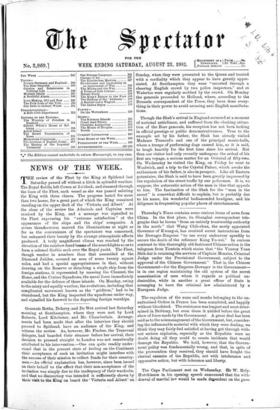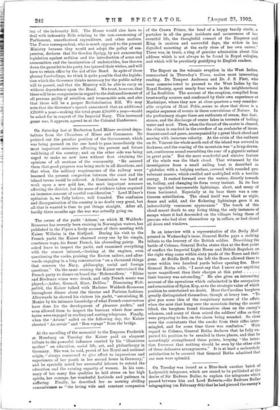ing of the indemnity Bill. The House would also have
to deal with indemnity Bills relating to the non-summoning of Parliament, unauthorised expenditure, and other matters. The Times correspondent, who is much opposed to the present Ministry because they would not adopt the policy of sus- pension, declares that Sir Gordon Sprigg, by not announcing legislation against sedition and the introduction of arms and ammunition and the immigration of undesirables, has thrown down the gauntlet to his party, has ignored their wishes, and will have to retain office by the aid of the Bond. In spite of these gloomy forebodings, we think it quite possible that the legisla- tion which the Governor thinks necessary for the public safety will be passed, and that the Ministry will be able to carry on without dependence upon the Bond. We trust, however, that there will be no compromise in regard to the disfranchisement of all persons guilty of rebellion and treasonable acts, and also that there will be a proper Redistribution Bill. We may note that the Governor's speech announced that an additional L'20,000 a year—making the total grant £50,000 a year—would be asked for in respect of the Imperial Navy. This increased grant was, it appears, agreed to at the Colonial Conference.







































